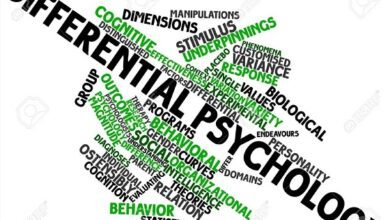What is Emotional hunger and How to overcome emotional hunger
Emotional hunger
Emotional hunger leads the person suffering from this condition to eat food to satisfy a false internal feeling of hunger. In reality, this obsession with food is caused by a feeling of inner restlessness that, due to different factors, pushes the person to eat food automatically with the intention of calming this strange feeling. This inappropriate behavior, so much so that it does not respond to the body’s real needs but to unconscious emotions, can cause physical and emotional problems.
Explanation
It is an eating disorder that leads people to impulsively and uncontrollably eat food with the intention of quenching a “false” feeling of hunger. Emotional hunger does not respond to real physiological hunger needs, but rather to emotional or psychological affective needs that people suffering from this disorder are unaware of.
Just as it can happen with any other addictive psychological disorder, such as chemical dependence, smoking, alcoholism, vigorexia or emotional dependence, emotional hunger uses a fortuitous way of a “useless” means to calm the inner restlessness. In this case, food becomes the instrument used to silence emotions.
What Causes?
It responds to deep and intense negative emotions that remain in the unconscious. Precisely, it is this lack of awareness of its presence that causes a feeling of inner restlessness that, for different and varied reasons, can be compensated through disproportionate and uncontrolled food intake.
The inner emotional malaise, which gives way to emotional hunger, is usually the result of emotional needs, unmet needs or unresolved conflicts , among others. Whatever its origin, it is activated in the face of certain situations in life and, in the same way as with other addictive behaviors, the person resorts to uncontrolled food intake as a way to calm this inner anxiety.
Currently, we could say that this is a much more common problem than we imagined. In different degrees and intensities, it manifests itself in the face of emotional deficiencies that, nowadays, are present to a greater or lesser extent in most people in the population.
Consequences of emotional hunger
We can say that emotional hunger is a problem-solving mechanism, as is usually the case with all reactive responses to unconscious psychological conflicts, which has the intention of first helping us, by pretending to lessen or end the internal discomfort felt. However, given the negative consequences that occur in the long term, it is an inadequate means that must be replaced by a more satisfying and healthy resolution.
Next, we will mention what are the consequences :
- Immediate discomfort after ingestion of food.
- Possible derivation to bigger problems, such as anorexia and bulimia .
- Loss of self-esteem.
- Alteration of inner calm.
In addition, the food industries are dedicated to producing foods with certain substances, the consumption of which produces an “instant relief”, but little lasting, from inner anxiety. For this reason, it usually causes the addictive and uncontrolled consumption of foods that, due to their composition, are not at all healthy.
How to know if it’s hunger or emotional hunger
One way to tell if I have emotional hunger is to try to differentiate it from real hunger. That way, once you identify emotional hunger, you will be able to implement different strategies from those applied so far to fight it, free yourself from it and adequately resolve your internal conflict.
According to psychologist Manuel Antolí n[1] who specializes in eating disorders , emotional hunger differs from physical hunger in the following five aspects:
- Cause : physical hunger appears due to certain nutritional needs that the body has at a given time. It, however, arises as responses to certain psychological-emotional internal conflicts.
- Appearance : physical hunger manifests itself gradually and can wait, while emotional hunger comes on more abruptly and with a lot of intensity and impatience.
- Satiety : physical hunger is suppressed once we ingest the necessary nutrients that our body demanded. On the contrary, emotional hunger is hardly satisfied despite the fact that, on many occasions, our body has been stuffed with food ingested.
- Chosen foods : physical hunger chooses those foods that, due to their nutrients, supply the body’s physiological needs. Emotional hunger, on the other hand, tends to crave foods lacking in nutrients and full of unhealthy substances such as fats or sugars.
- Emotions generated : after the satisfaction of physical hunger, the person feels strengthened, calm and satisfied. Once the disproportionate consumption as a result of emotional hunger is over, the person feels disappointed with himself and sadness and anger usually accompany him. In this text, discover how to deal with sadness.
How to overcome emotional hunger
As it is another addictive psychological disorder, our recommendation is to try to find a solution as soon as possible to avoid greater harm in the long term. Like any process of solving psychological problems, overcoming emotional hunger means going through the path of personal self-knowledge, care and improvement of conflict resolution strategies.
Below we will provide some advice for controlling it:
- Start a personal self-knowledge work that will help you to become aware of your problem and help you to question the causes that originated it, since this type of disorder is a reactive response to an internal conflict.
- Learn to detect and look for alternatives : helped by therapeutic work, learn to detect when you feel it, not physical hunger, and look for alternatives that calm this inner restlessness. For example, you can go for a walk, breathe consciously, practice body relaxation, etc.
- Learn to eat healthily : on many occasions, emotional hunger originates as physical hunger connected to emotional dissatisfactions and, if not controlled, results in the disproportionate consumption of unhealthy foods that fill our body without nourishing it with what you need. Eating healthy will meet your physiological needs and give you tools to overcome emotional hunger and eat healthy foods that “erase” inner anxiety.
- Call a loved one : in certain moments of loneliness in which we remain apathetic, emotional hunger is activated, reminding us of our emotional emptiness. When you notice these signs, call and hang out with good friends and loved ones to quell the anxiety.
- Do whatever makes you happy : when you notice signs of it, you should focus on those actions that make you stronger to make any inner dissatisfaction disappear.
- Learn to control your impulses : if you want to overcome emotional hunger, when it appears, you must learn to control your impulses and, if you have already started compulsive consumption, try to stop it.
- Heal your inner wounds : therapeutic work will help you heal the pain caused by your wounds and imprint new images of yourself, others and life inside you. This will completely override any symptoms of it.




